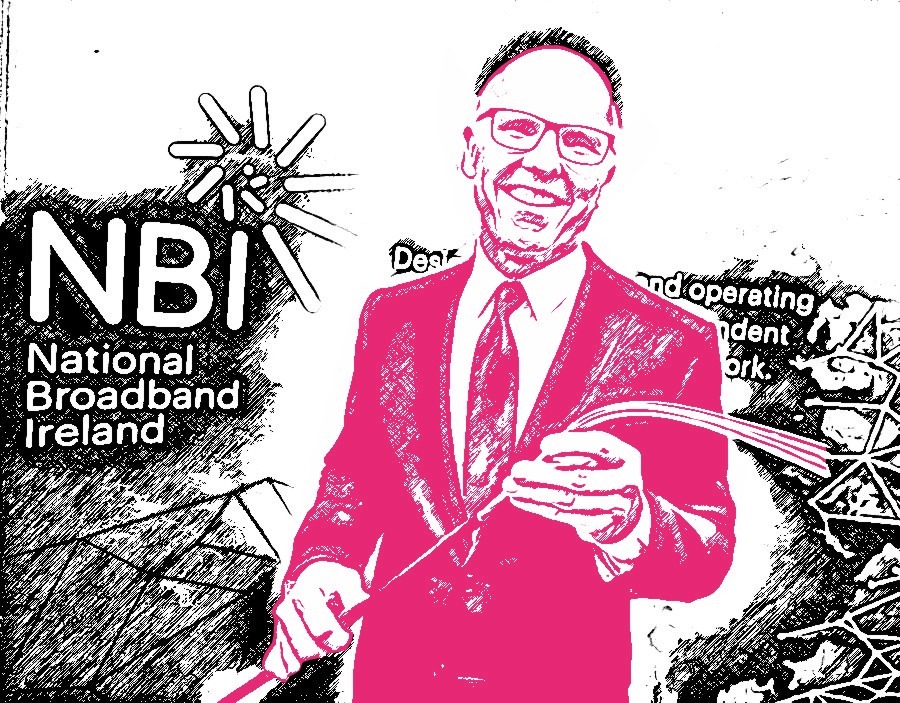As taxpayers and citizens, we enjoy great access to information of public interest in many areas. We can all find out who owns any plot of land in the country. We can see the exact sum paid in subsidies to every Irish farmer. We can visualise the size of the bathroom in the house our neighbour is putting through the planning application process down the road.
But we can’t see exactly who owns 30 per cent of the company that signed the contract to collect up to €2.97 billion in state subsidies to roll out high-speed broadband to half a million homes and businesses in rural Ireland. We don’t know the conditions for its share capital to meet minimum investment requirements, change hands, or collect returns.
We don’t even know against which criteria the government decided to begin paying National Broadband Ireland (NBI) subsidies totalling €132.3 million to the end of September.
The transparency issue emerges at every turn of our reporting on the finances of NBI over the past week. The successive governments involved in the National Broadband Procurement process, from 2015 to this day, have a lot to explain.
Last week, Thomas’s series of articles, NBI uncovered, first lifted the curtain of a byzantine holding structure to reveal the ultimate respective interests of the business’s shareholders – a critical piece of information the government had refused to communicate to the Dáil just last month.
Thomas then highlighted the gap between the government’s promises that private investors would firmly place an initial €220 million equity investment in NBI and reality. At the end of 2020, they had indeed committed that sum, but actually risked only €2 million in purchasing NBI shares and loaned another €98 million at a horrendously expensive 12 per cent compound interest rate. As far as we know, the majority of committed funding has yet to reach the company, and nearly all the investment made can be taken out again after five years.
In a third instalment, Thomas detailed the €50 million NBI paid to its shareholders in fees and interest last year. Companies with NBI chairman David McCourt (pictured) as their director received the lion’s share of these payments. A US company he formed one week before signing the contract billed €32.7 million to cover the costs incurred in preparing and winning the National Broadband Plan contract in the past.
Having secured these initial payments, NBI’s backers are now reconsidering their position in the business. By the end of the week, we discovered that Granahan McCourt had appointed PJT, a global corporate finance advisory firm, “to establish a long-term capital structure that recognises the maturity of the project,” a spokesperson said.
This turn of phrase tells us a lot. The existing shareholders of NBI – Oak Hill Advisors, Hamid Akhavan-Malayeri’s (presumed) Twin Point Capital, Tetrad Corporation and Granahan McCourt – were not in for the long haul, despite David McCourt’s multiple media appearances promoting long-term investment in infrastructure.
It is now plain for everyone to see that their commitment was limited to five years, during which high fees and loan interests would redirect a portion of the highly subsidised construction phase of the National Broadband Plan to their own companies.
Only now that “maturity” is in sight, with a rolling stock of rural people likely to start paying for connectivity while new ones are added to an expanding network, is David McCourt looking for stable investors to back the largest infrastructure project in the history of the state.
And only now that journalists can access information scattered across a dozen separate companies does the public find out about it. The owner of one golden share in NBI, however, could and should have scrutinised the company, transparently exposed the position of its investors and taken action to lift uncertainty. That’s the Minister for Communications.
Hopefully, we will get some answers. Catherine Murphy, the co-leader of the Social Democrats, has asked for Dáil time to deal with the issue. In doing so, she cited the work of Thomas and the Business Post, who have exposed just how far behind the roll-out of the broadband network has been. This story is not going away.


